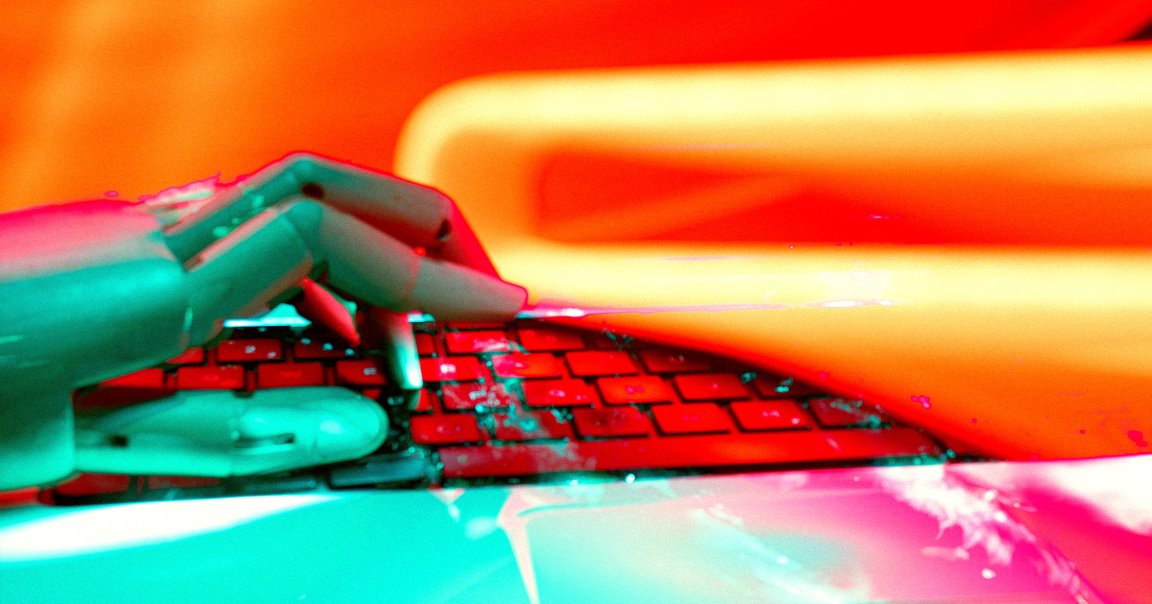
In the almost exactly three years since the advent of OpenAI’s ChatGPT, a tidal wave of AI slop has turned large swathes of the internet into an almost unrecognizable hellscape.
Text carelessly generated by a large language models has invaded countless industries, from lawyers citing cases that were hallucinated by an AI to insipid lyrics crooned by chart-topping country music artists that don’t actually exist in real life.
The world of journalism, in particular, has been facing an existential crisis as the tech lets anyone with a pulse whip up prose that sounds authoritative and true — but in reality, as we’ve seen time and again, turns out to be anything but.
Case in point, in an excellent piece for Toronto-based online magazine The Local, editor Nicholas Hune-Brown detailed how he was almost fooled into assigning a story based on a pitch by a writer who identified herself as Victoria Goldiee.
The writer claimed to have written stories for several publications, which Hune-Brown initially confirmed with a quick Google search.
But it didn’t take long for some red flags to come up. First, there was the “stilted” phrasing in her emails, a hallmark of AI chatbots. Then, as it turned out, many of the quotes Goldiee used in her pieces were entirely made up, as Hune-Brown found out via his own investigation.
“I did not speak with this reporter and did not give this quote,” designer Young Huh, who was quoted by Goldiee in a piece for design publication Dwell — which is owned by the same parent company as Futurism — told Hune-Brown.
Other editors noticed similar discrepancies after being pitched by the suspiciously industrious writer.
“As I recall, the articles bylined by Victoria borrowed far too heavily from articles published elsewhere,” former PS editor Nancy Einhart told Hune-Brown. “I remember feeling disappointed because I really liked Victoria’s pitches.”
“You are actually the third editor to contact me about this writer in the past couple of months,” she added. “She is clearly on a pitch tour.”
Whether Goldiee exists in real life, or whether the identity is just a nom de plume, remains unclear at best. Hune-Brown managed to get her on the phone, but in response to pointed questions, she abruptly hung up on him.
It’s only the latest instance of scammers posing as freelance writers trying to dupe publications into publishing their work, often replete with fictionalized quotes attributed to real people. Even acclaimed publications like Wired and Quartz continue to fall for the ruse.
To Hune-Brown, it’s symptomatic of a depressing race to the bottom as the journalism industry continues to suffer from mass layoffs. AI has shaken the industry to its core, with eager executives encouraging wary reporters to make use of a technology — despite it having an extremely well-documented track record of making up facts.
Worse yet, Google is adding to the industry’s woes by discouraging users from clicking on links via frequently error-laden AI summaries, undercutting many publications’ business models that rely on display ad revenues.
Scammers are “taking advantage of an ecosystem uniquely susceptible to fraud — where publications with prestigious names publish rickety journalism under their brands, where fact-checkers have been axed and editors are overworked, where technology has made falsifying pitches and entire articles trivially easy, and where decades of devaluing journalism as simply more ‘content’ have blurred the lines so much it can be difficult to remember where they were to begin with,” Hune-Brown wrote.
Several publications, including The Guardian and Dwell, removed Goldiee’s work after Hune-Brown contacted them with questions.
But the incident has left a bad taste in Hune-Brown’s mouth, suggesting a near future where things could get even tougher for those trying to make it work in journalism.
“I was a freelance writer for most of my career, so as an editor, I’ve always done my best to respond to every thoughtful pitch I get,” Hune-Brown wrote. “Looking at them now, though, all I could see was the synthetic sheen of artificial intelligence.”
“There were probably some promising young writers buried in there somewhere,” he added. “But I couldn’t bear to dig through the bulls*** to try to find them.”
More on AI and journalism: Tests Show That Top AI Models Are Making Disastrous Errors When Used for Journalism